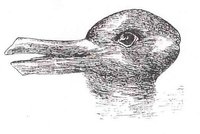#PhilosophicalFragments
Philosophical Fragments
Philosophical Fragments (Danish title: ) is a Christian philosophic work written by Danish philosopher Søren Kierkegaard in 1844. It was the first of three works written under the pseudonym Johannes Climacus, the other two were Johannes Climacus,
Read More..
by Søren Kierkegaard (as Johannes Climacus)
Ratings
Likes
Reviews
Popularity
Ranks
This #hashtag is not ranked yet.







